Focal area: Gender mainstreaming
-
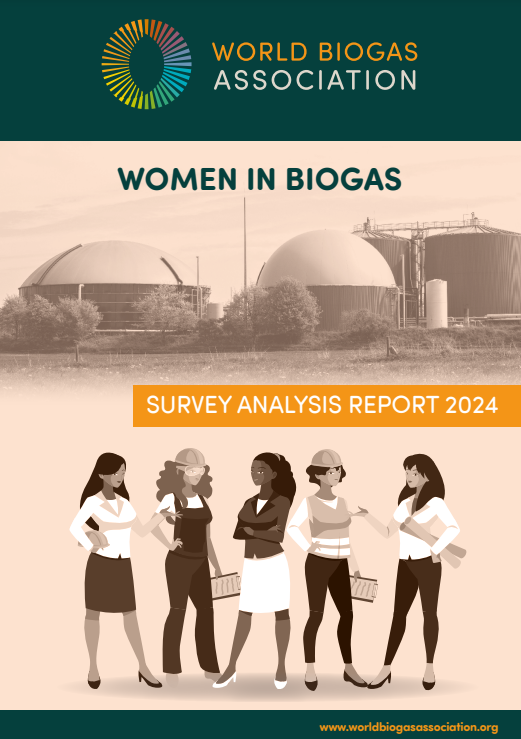
Women in Biogas. Survey Analysis Report 2024
This report explores the current state of gender representation in the biogas sector and highlights initiatives and policies needed to enhance female participation and leadership. It explores how women interact with the biogas sector as participants. Specifically, it analyses the progress and current place of women in the biogas industry relative similar industries
-
Towards Gender Equality and Social Inclusion in Energy Utilities: Approaches, Methods, and Results from Nepal
The project Strengthening the Capacity of the Energy Sector to Deliver Gender Equality and Social Inclusion Results was implemented from January 2019 until December 2021. The project’s ultimate goal was to mainstream gender equality and social inclusion (GESI) in the program and project cycles of the Nepal Electricity Authority (NEA). The NEA is responsible for…
-

Energy Access and Gender in Ghana: Policy Brief
In the wider West African region, Ghana is often seen as an energy success story with over 80% of the population having access to grid electricity. Yet, 50% of rural areas live without this access while ‘dumsor’ (load shedding) poses an ongoing challenge for those connected. In terms of gender equity, national energy policy recognises…
-
Energy Access and Gender in India: Policy Brief
The connection between equity in energy access and developmental aspects like poverty reduction, health and wellbeing is today well understood. Responding to this, energy access policies and programmes in India have tried to address gender equity within energy access, but much of this effort has failed to create a transformational impact. Until 2018, 680 million…
-
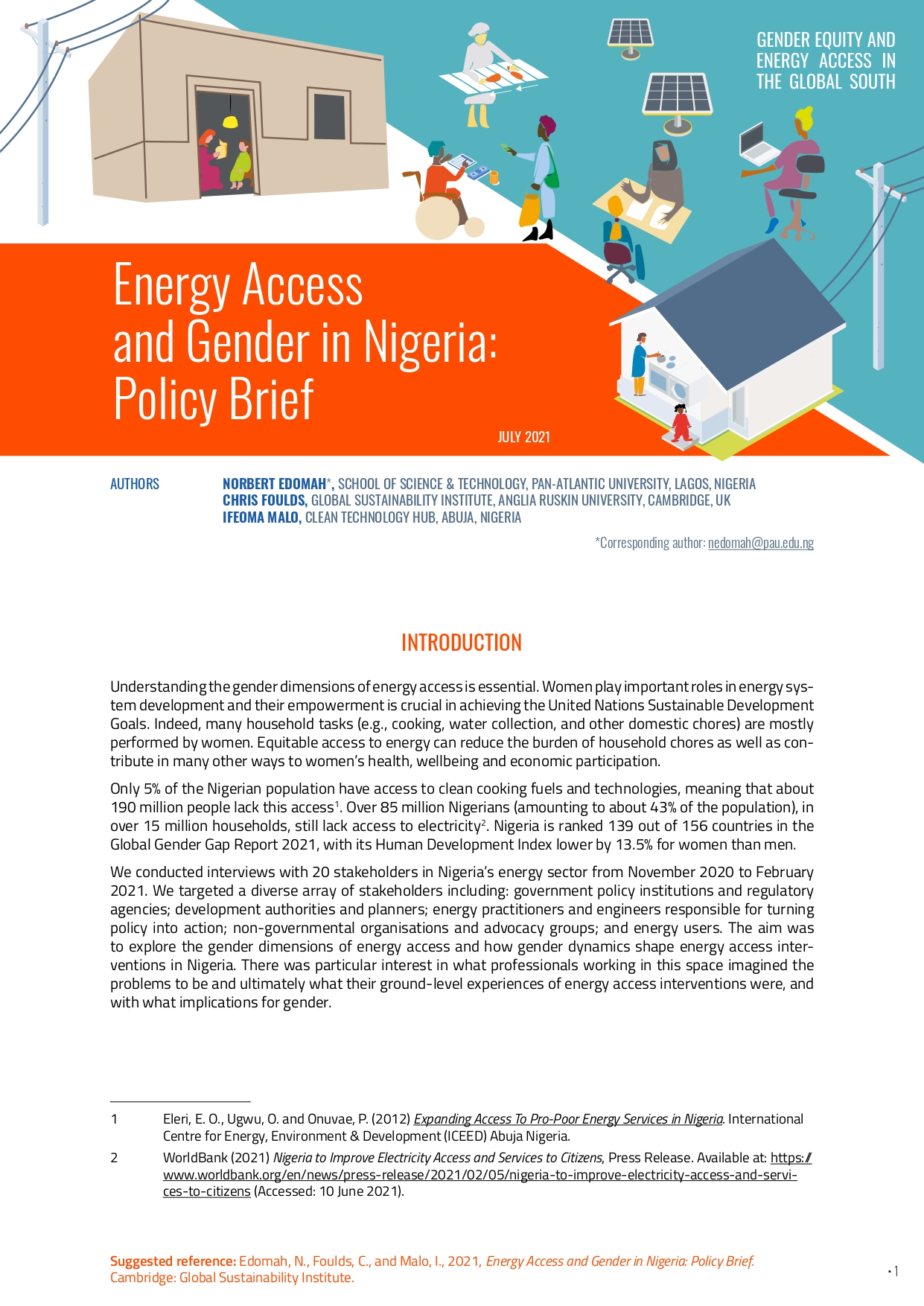
Energy Access and Gender in Nigeria: Policy Brief
Understanding the gender dimensions of energy access is essential. Women play important roles in energy system development and their empowerment is crucial in achieving the United Nations Sustainable Development Goals. Indeed, many household tasks (e.g., cooking, water collection, and other domestic chores) are mostly performed by women. Equitable access to energy can reduce the burden…
-
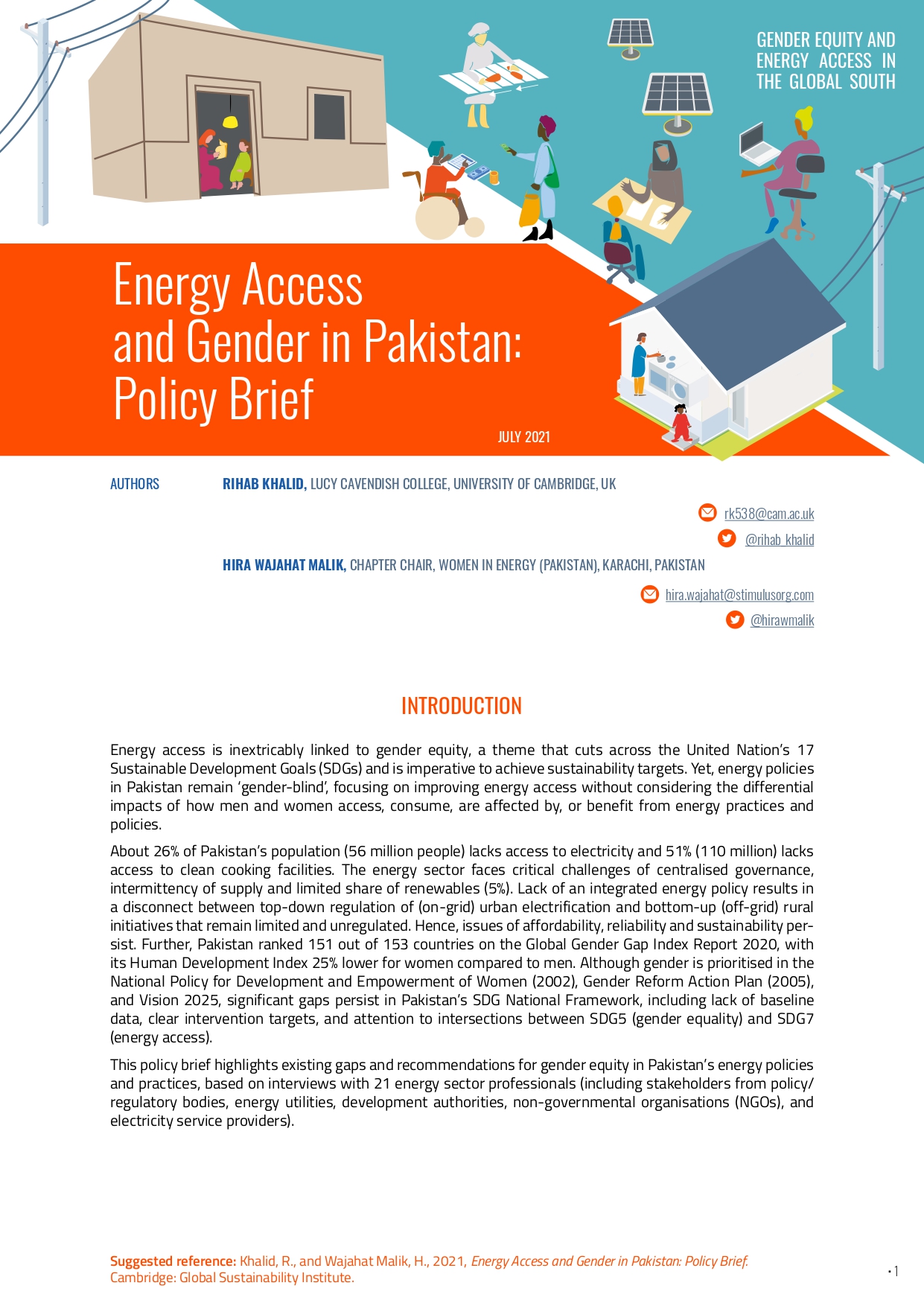
Energy Access and Gender in Pakistan: Policy Brief
Energy access is inextricably linked to gender equity, a theme that cuts across the United Nation’s 17 Sustainable Development Goals (SDGs) and is imperative to achieve sustainability targets. Yet, energy policies in Pakistan remain ‘gender-blind’, focusing on improving energy access without considering the differential impacts of how men and women access, consume, are affected by,…
-
Lecture: Gender equality and the energy sector
-

Workshop: Energy transition through the lens of gender equality
Date: April, 27 2021 Time: 9:15 – 12:30 CEST Location: Virtual event. Register: Register to attend here. (CLOSED) – The slides are now available here. The event aims to bring together decision-makers, energy professionals and academics to discuss three main aspects of gender equality in the energy transition: 1. Gender mainstreaming in the energy sector: to…
-
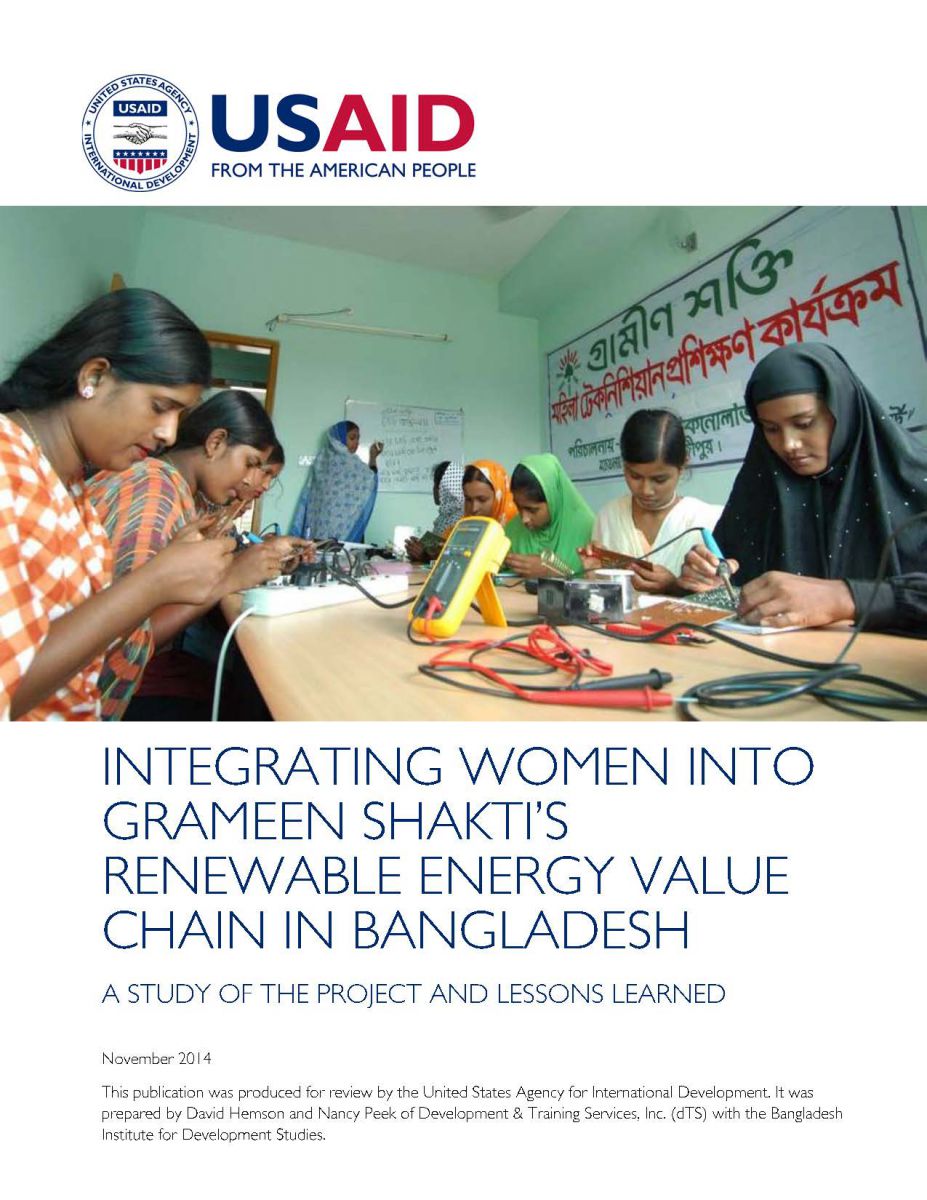
Integrating Women into Grameen Shakti’s Renewable Energy Value Chain in Bangladesh: A Study of the Project and Lessons Learned
This assessment report considers gender equality and women’s empowerment in Bangladesh, and covers a study focused on the USAID-funded Rural Empowerment through Renewable Energy project. This 15-day technological training for rural women in Bangladesh helped to integrate women into the Grameen Shakti (or GS, the leading renewable energy company in the country) renewable energy value…
-
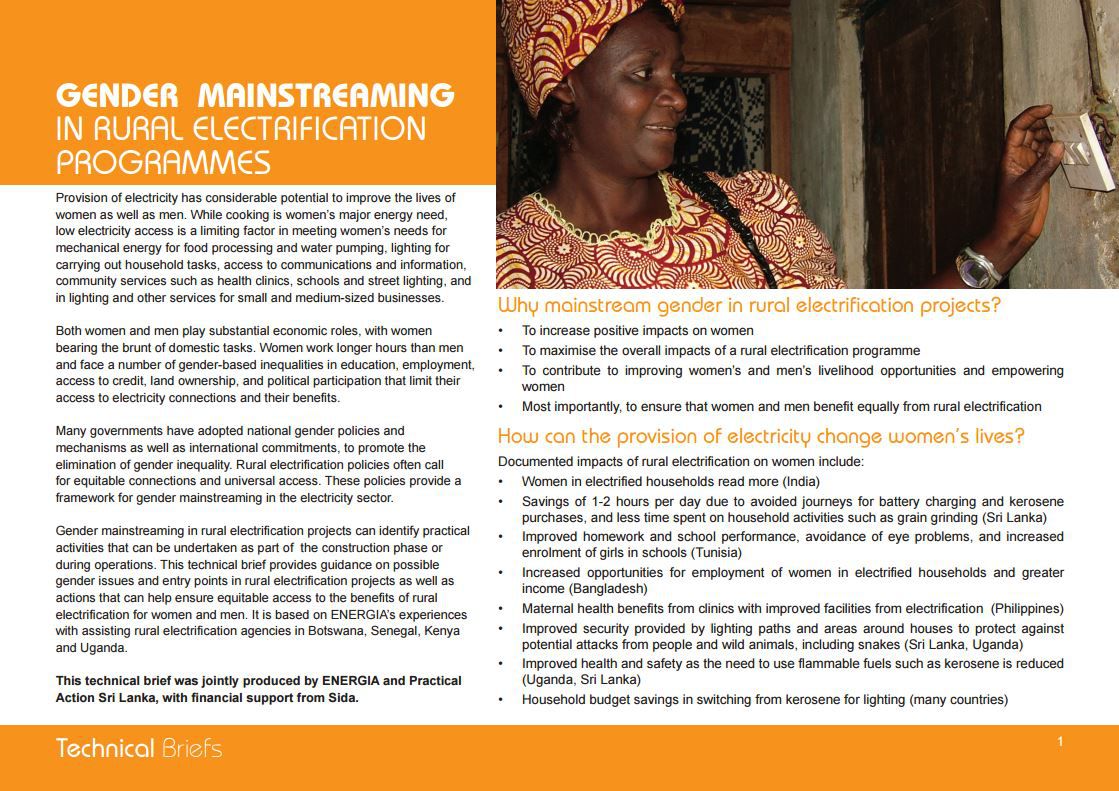
Gender Mainstreaming in Rural Electrification Programmes
Gender mainstreaming in rural electrification projects can identify practical activities that can be undertaken as part of the construction phase or during operations. This technical brief provides guidance on possible gender issues and entry points in rural electrification projects as well as actions that can help ensure equitable access to the benefits of rural electrification…
-
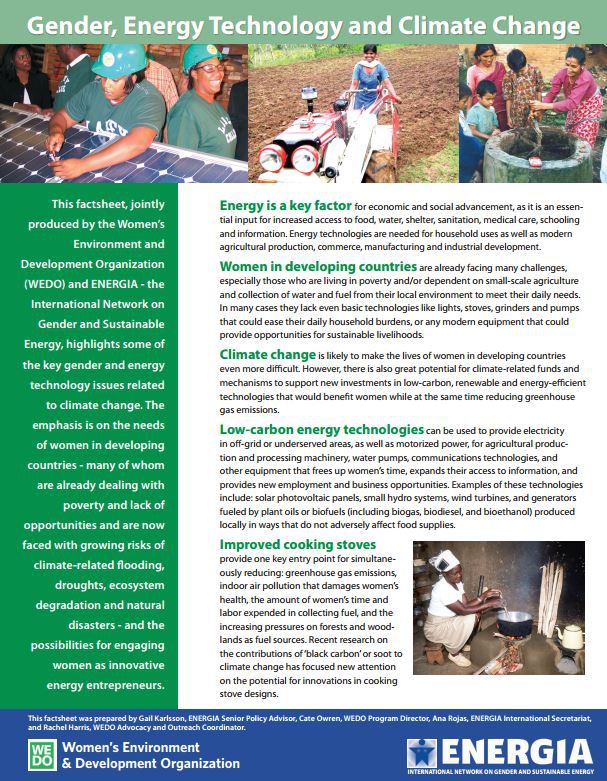
Gender, Energy Technology and Climate Change
This factsheet, jointly produced by the Women’s Environment and Development Organization (WEDO) and ENERGIA – the International Network on Gender and Sustainable Energy, highlights some of the key gender and energy technology issues related to climate change. The emphasis is on the needs of women in developing countries – many of whom are already dealing…
-
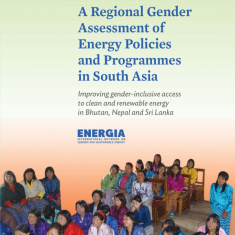
A Regional Gender Assessment of Energy Policies and Programmes in South Asia Improving gender-inclusive access to clean and renewable energy in Bhutan, Nepal and Sri Lanka
Improving Gender-Inclusive Access to Clean and Renewable Energy in Bhutan, Nepal and Sri Lanka is an Asian Development Bank (ADB)-supported project(JFPR Grant-9158 REG). The project aimed to increase rural poor women’s access to affordable and reliable clean energy sources and technologies in selected project sites in Bhutan, Nepal and Sri Lanka. It was implemented by…

